Alcohol can trigger nasal congestion due to its dehydrating effects and the body’s reaction to histamines in certain drinks. Just like wine, beer has a lot of ingredients that can make someone react negatively. Some of the most common culprits for reactions are gluten, hops, wheat, and yeast. If you have an intolerance or sensitivity to any of these ingredients, you’ll likely react to drinking beer.
Causes of Stuffy Nose on Drinking Alcohol
- Yes, certain beverages such as red wine and beer, which contain higher levels of histamines and sulfites, may exacerbate nasal congestion more than others.
- Alcohol intolerance can also cause immediate, uncomfortable reactions, including a stuffy nose and skin flushing.
- Remember to choose wines that are lower in histamine and sulfites, pair your wine with congestion-friendly foods, and stay hydrated to reduce the risk of congestion.
- Making dietary adjustments, such as reducing intake of histamine-rich foods, and considering supplements like vitamin C, which can help mitigate the effects of histamine, may also be beneficial.
Working out with light hand weights and regular stretching are other fitness options for helping your lungs better deal with the stresses that come with alcohol consumption. It’s important to have some food in your stomach to help soak up the alcohol you drink. Having smaller meals throughout the day can help prevent the alcohol from entering the small intestines too quickly and thus can slow down the rate of alcohol absorption. Caffeine and alcohol dehydrate you, and so mucus thickens and congestion becomes more difficult. When sinus pressure is caused by an allergy, it can result in ongoing congestion. Warm compress causes an increase in blood flow to the sinuses, which enables faster mucus drainage.
Sulfites and Other Additives

It is not a true allergy, but it can sometimes be a reaction to other ingredients in alcoholic drinks, such as grains, preservatives, or chemicals. If you are prone to histamine intolerance or sensitivity, opting for low-histamine alcoholic options may help minimise adverse reactions. If you are someone who experiences red wine congestion, try switching to white wine or avoiding alcohol altogether. You can also try taking an over-the-counter antihistamine before drinking red wine. If you suffer from AERD, it is important to be aware of the potential triggers for your symptoms and to take steps to avoid them.
Are there any alternative beverages I can drink if wine causes me congestion?
Consulting with a healthcare professional for allergy testing may also provide clarity. When alcohol causes chest pain or breathing issues, it likely indicates an allergy or intolerance. While moderation may help minimize the effects, individuals with a specific sensitivity may still experience nasal congestion, even with smaller amounts of alcohol.
- This blog will discuss some effective steps to relieve nasal congestion, what to stay away from, and when to seek the help of a doctor.
- Additionally, many beers have gluten, which can exacerbate symptoms for those with gluten sensitivities or celiac disease.
- You can also try taking an antihistamine or decongestant to alleviate symptoms.
- Histamines are known to cause the constriction and swelling of blood vessels, which can result in nasal congestion.
This is because the skin of red grapes contains more histamine, which is released during the fermentation process. On the other hand, white wines, like Chardonnay and Sauvignon Blanc, tend to have lower histamine levels. However, white wines often contain higher levels of sulfites, which can also contribute to congestion. Certain foods, such as dairy products and spicy dishes, can exacerbate congestion by increasing mucus production and irritating the nasal passages.
Dehydration

Finally, if you experience persistent or severe nasal congestion after drinking red wine, you may want to consult with a healthcare professional to rule out any underlying health issues. For some individuals, allergies or sensitivities play a significant role in their experience with alcohol consumption. Certain ingredients found in alcoholic beverages—like grains used in beer or sulfites found in wine—can trigger allergic reactions that manifest as nasal congestion. Additionally, some people may have lower levels of the enzymes required to break down alcohol, resulting in a mild allergic reaction. Histamines are compounds involved in immune responses and can be found in various foods and beverages, including wine and beer. When someone drinks congested after drinking an alcoholic beverage high in histamines, they may experience nasal congestion as their body reacts to these compounds.

Additionally, an individual’s sensitivity to alcohol may make them more likely to become congested when drinking any type of alcoholic beverage, including red wine. For those who do find themselves experiencing nasal congestion after drinking red wine, it is important to remember that it is often temporary and should clear up on its own. However, if symptoms persist or become severe, it is important to seek medical advice.
These include opting for wines with lower sulfite content, drinking in moderation, consuming a meal before drinking, and staying well hydrated. It’s important to note that not everyone experiences nasal congestion after drinking alcohol; individual responses vary widely based on genetics and personal health factors. Excess histamine levels in the bloodstream trigger blood vessel expansion, resulting in a histamine reaction, causing facial redness and warmth. Various people rely on prescription antihistamines or antihistamine use before drinking to reduce symptoms, although intolerance remains unchanged in such cases. Chemical additives, including artificial colors or stabilizers, further irritate the system and contribute to discomfort. People with grain allergies or intolerances often experience bloating, nausea, or sinus congestion after consuming specific alcoholic drinks.
Does Taking Pepcid Before Drinking Prevent Alcohol Flush Reaction?
These preservatives are commonly used in wine production to prevent oxidation and maintain freshness. Some individuals have a sensitivity or allergy to sulfites, which can lead to respiratory issues, including nasal congestion. Congeners, which are by-products of alcohol fermentation, can potentially worsen nasal congestion. Darker alcoholic beverages such as red wine and whiskey contain higher levels of congeners, which may contribute to increased congestion in some individuals.
Can Drinking Alcohol Cause A Stuffy Nose?
Different types of red Alcoholics Anonymous wines have different levels of alcohol, with some having more than others. The amount consumed can also impact how much congestion a person will experience. Alcohol can lead to nasal congestion by triggering the release of histamines in the body.

If you or someone you know is considering snorting beer, it is crucial to be aware of the dangers and health risks involved. It is important to remember that there is no safe way to snort alcohol, and the safest way to consume alcohol is by drinking it in moderation. If you are concerned about your alcohol intake or that of a loved one, there are resources and treatment options available to help.
